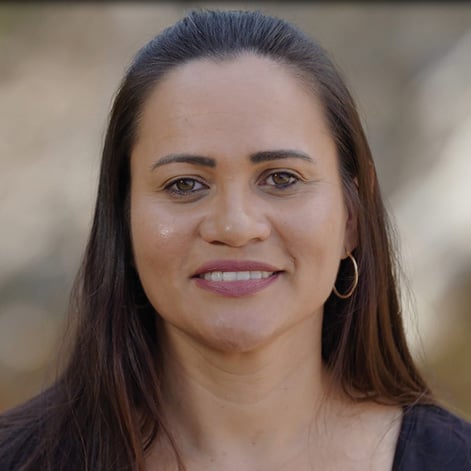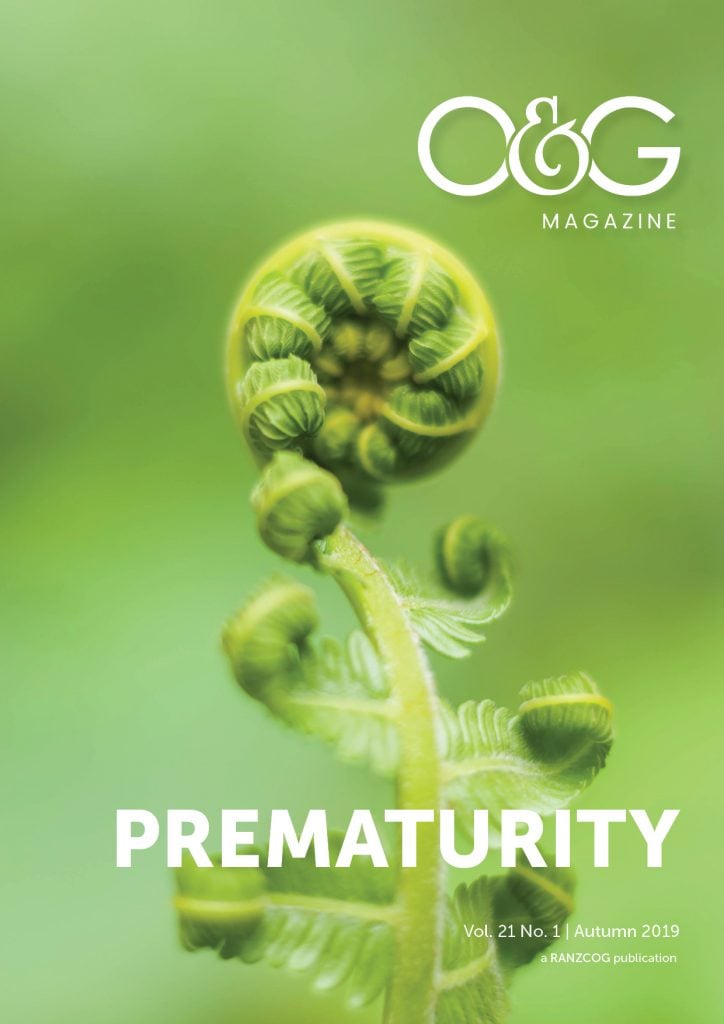This new O&G Magazine feature sees Dr Kirsten Connan in conversation with RANZCOG members in a broad range of leadership positions. We hope you find this an interesting and inspiring read. Join the conversation on Twitter #CelebratingLeadership @RANZCOG @connankf
Dr Kiarna Brown
FRANZCOG
Dr Kiarna Brown is staff specialist and RANZCOG training supervisor at Royal Darwin Hospital and a VMO gynaecologist at Darwin Private Hospital. She is the Deputy Chair of RANZCOG’s Aboriginal and Torres Strait Islander Women’s Health Committee and one of the NT Clinical Leads for the National Preterm Birth Alliance.
Dr Brown was born and bred in Darwin, but her journey from schoolgirl to medical specialist has taken her around much of Australia. It took her from her home in Darwin to boarding school in Ballarat and then off to Perth at 19 for an Aboriginal pre-medicine program that was followed by a medical degree.
Her first job as a doctor was in Townsville, followed with obstetrics and gynaecology training further south in Queensland, before eventually returning back to Darwin.
Although from Darwin, her Indigenous heritage is more widespread. Her grandmother’s heritage is from Pine Creek in the Northern Territory and her grandfather from the Torres Strait Islands, with family spanning to Cape York.
Dr Brown gave a plenary address on Closing the Gap in maternal and infant mortality at the 2018 RANZCOG ASM. Her interview with Croakey News following this address can be found at www.youtube.com/watch?v=7uIDhsKeQ6U.

Dr Kiarna Brown
Why did you choose O&G and your career pathway?
O&G always excited me, and it was something I was drawn to early. I actually thought I’d be a GP obstetrician in regional Australia, but once I did the DRANZCOG I knew that I only wanted to do O&G. I’ve never been sorry that I chose this career path; every day is varied and there is still so much to learn.
What have been the highlights of your professional career?
Definitely coming back to my hometown to work! Clinically, I have a tough but very rewarding job. I love doing outreach to remote NT communities and I love the variety up here.
What have been the biggest challenges during your career?
There have been a few; getting through exams, moving frequently for training posts and the anxiety of wondering if my training had been adequate to become a good specialist. I’ve been lucky though, I had a supportive partner through my training, I made some great lifelong friends to study, work and socialise with, and I’ve had amazing mentors along the way.
Would you describe yourself as a leader, and why?
I would not readily describe myself as a leader. However, I am aware that owing to my background, my experiences and my clinical interests, I am called upon to provide leadership in particular areas.
I am one of five Aboriginal FRANZCOGs. I have a very strong passion and commitment to improving health outcomes for Aboriginal women, babies and communities. I am involved in groups and organisations that provide leadership in this area, so I guess that may make me a leader.
How did your leadership journey occur?
It was certainly an informal journey and something that’s developing over time. I have had many wonderful formal and informal mentors. Towards the end of my training, I made a point of seeking attributes in colleagues that would shape the type of specialist I aimed to become, but I am always finding inspiration in other people.
What is one of your current leadership goals?
In my working lifetime I want to see some success in closing the health disparity gap that exists for Aboriginal and Torres Strait Islander people. I am determined to witness change!
What do you feel are essential characteristics as a leader?
Passion, knowledge, resilience and insight.
What do you feel have the biggest challenges/barriers to your leadership journey?
Perhaps my own apprehension to describe myself as such.
What future leadership goals do you have?
I’m really excited to be part of the new Australian Preterm Birth Prevention Alliance. I truly believe that reducing preterm birth rates in Aboriginal and Torres Strait Islander communities is an achievable goal and something that will have significant impacts for short- and long-term health outcomes for communities.
What role do you feel RANZCOG should play with regards to leadership?
I think, for future strong leadership, RANZCOG needs to nurture leaders. We need to have good mentors. We need to have supportive staff. We need opportunities to grow and appropriate conditions in which to flourish.
What role do you feel RANZCOG should play with regards to closing the gap?
As the peak body that trains women’s healthcare providers and advocates for women’s health, RANZCOG plays a vital part in closing the gap.
Aboriginal and Torres Strait Islander women’s health has been, and should always be, on RANZCOG’s agenda. It should also be something that the
whole membership feels motivated to contribute to change.
How do you balance your personal and professional life?
Often with great difficulty. There are many things I would love to do in my professional life, but in reality, I am a wife and a mother of two small children. I know that my children will be grown in a flash, so I am dedicated to being a good mother so that I can grow them as strong leaders for
the future.
What advice would you give to a trainee at the beginning of their career?
Don’t be afraid to ask for help.
Do you have any regrets about your career?
The funny thing about our life journey is that we don’t know what we don’t know until we know it. I certainly could have studied harder, worked more and tried to obtain more qualifications. But in reality, I was a kid who came from a family of strugglers. I’ve exceeded any expectations most had of me (probably including myself) and that’s good enough for me.
Do you feel that the College is heading in the right direction?
I certainly feel as though there are very passionate people in key leadership roles within our College. I think that the College objectives are inclusive of all women. I was involved in the National Women’s Health Summit in 2018, which I thought was amazing and gave me really good insight into how RANZCOG can influence policy and change in women’s health.
What would you tell your younger self if you had the chance to go back in time?
Take better care of your health.
What three words best describe your life?
Busy, busy and busy! Probably like most people.






Thank you the story on and recognition of Kiarna